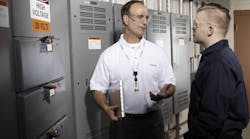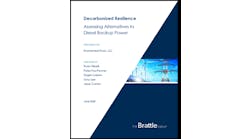In this week’s Voices of the Industry, Michael Levy, Global Colocation Product Manager at CenturyLink, takes a look at the role data centers and colocation providers play in businesses expanding IT into international markets.
There are many popular brands here in the United States that are also well-known across the world. However, these companies didn’t start out with a global presence – for most, it happened gradually.
Michael Levy, Global Colocation Product Manager at CenturyLink
Businesses interested in expanding their footprint into international markets look to obtain the benefits of such growth – including increased revenue, enhanced exposure and brand recognition, global partnerships and a more diversified product and/or service offering – but they also face challenges in making that expansion occur successfully.
Resources for Expansion
I speak with a lot of people whose companies want to expand into new markets, both nationally and internationally. However, their data centers are typically far smaller than those of a multi-tenant colocation provider, and it’s difficult for them to get the funding to pay for a facility with a high level of resiliency.
Companies that want to move some of their activity outside their current boundaries also might not take into account the cost for employees on the ground in a new market, or for achieving connectivity between their domestic and international deployment.
If they work with a reliable colocation provider with a global footprint, however, those data center professionals can do all the racking and stacking along with managed services such as load balancing, patch management, server reboots and more. Most companies have a multitude of local colocation providers from which they can choose, but they should find a reliable one that can get them the most secure and effective point-to-point connections for expanding IT.
Companies that want to move some of their activity outside their current boundaries also might not take into account the cost for employees on the ground in a new market, or for achieving connectivity between their domestic and international deployment.
International Interconnection
Most companies expanding internationally like to deploy at a single point of presence to test a specific market, especially if there are some legal hurdles or political concerns. They’ll go to an interconnection hot bed where the colocation may be a bit more expensive than going to a facility that’s away from a major city or a secondary city, allowing them to maximize their radius of coverage. In the U.S., we see a lot of European companies going to either Ashburn, Virginia or Manhattan to get access to as many carriers from one facility as possible. They can get access to as many eyeballs as possible rather than just going full force into a new market and deploying in multiple geographies.
Looking abroad in Europe, businesses are deploying in London, Amsterdam or Frankfurt, the hot beds of interconnection for the region. In Asia, it would be either Singapore for Southern Asia or Hong Kong for Northern Asia. When it comes to China, I see a lot of customers deploying a colocation environment in Hong Kong that’s directly tethered to an environment in China where they could deploy virtualized resources. In case anything goes wrong and there is a political flashpoint, they can pull the virtualized environment back to Hong Kong.
International Rules and Regulations
Another challenge for many businesses looking to expand globally is their lack of knowledge of different countries’ various government regulations. Companies serving customers in certain international markets deal with data sovereignty issues and regional or regulatory compliance.
For businesses that choose to build their own data centers, it’s very difficult to expand into new global markets. It’s nearly impossible to move into any major cities that are regulated and unionized without having deep connections. Most enterprises looking at an international point of presence will not even consider building. Instead, they will look at tethering their proprietary data centers to their colocated international environment.
[clickToTweet tweet=”For businesses that choose to build their own data centers, it’s very difficult to expand into new global markets.” quote=”For businesses that choose to build their own data centers, it’s very difficult to expand into new global markets.”]
Starting Out Small
Many organizations start off small when they expand globally. It may just be a cabinet or two so they can put some infrastructure in-region to better support business in that territory – whether that be for internal customer and sales support systems, Web presence or something similar. They’re often very risk-averse because expanding internationally for the first time is no small task. In this scenario, colocation allows them to use a couple cabinets at first – likely in a virtualized fashion – before they start to deploy physical servers.
To find out more about how to find a trusted and reliable colocation provider in any part of the world, please review CenturyLink’s technical brief, “Data Center Management Best Practices: The Relentless Pursuit of Perfection.”
Michael Levy has extensive experience in the industry, currently serving as manager of CenturyLink’s global colocation product and previously serving as a senior data center analyst for 451 Research. From IT, hosting and managed services for business to high-speed Internet, TV and voice for homes, CenturyLink strives to constantly improve technology to better the lives of its customers.





